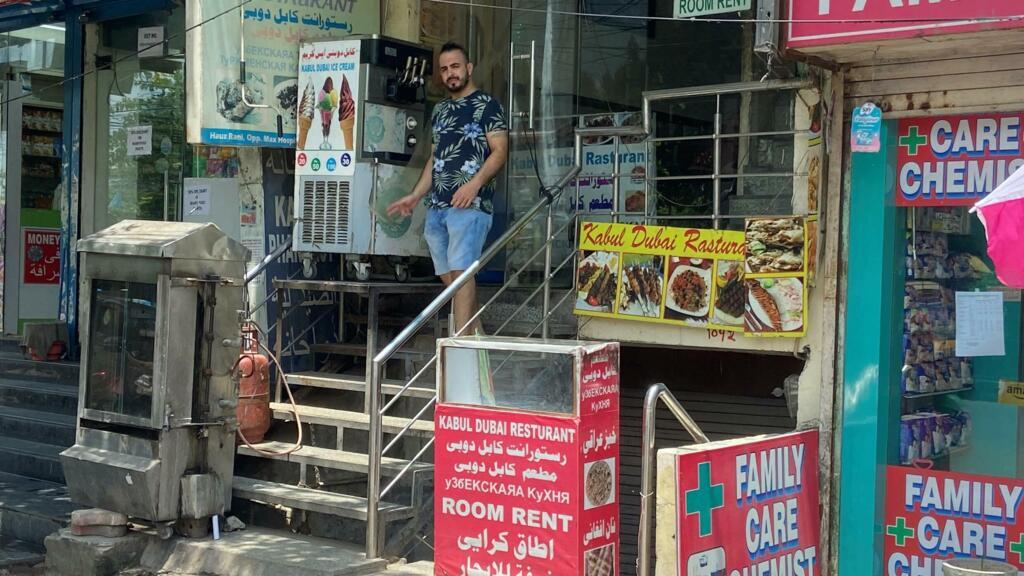Afghan refugees in India tensely wait for news of those they left behind
Issued on:
With a resurgent Taliban now re-established all over Afghanistan, thousands of anxious refugees in India continue to live in fear and uncertainty, wondering what the future holds for the family and friends they left behind.

Twenty-six-year-old Babar Khan has been tuning into the news regularly to get the latest updates on how the Taliban have been advancing in Afghanistan.
He runs a simple restaurant that serves traditional Afghan cuisine and delicacies in one of the congested lanes, just opposite south Delhi’s shopping mall, an area often referred to as “Little Kabul”.
“The city is now in the hands of the Taliban. Apart from that, huge parts of the country are now under Taliban control, they have removed the government from Afghanistan” Babar told RFI.
Concerned Afghan escapees
A sizeable Afghan refugee population lives in pockets of different localities in the Indian capital, where they run restaurants, bakeries and confectionery shops.
Hundreds of Afghan families have made the so-called Khirki Extension their home over the last few years, having fled Afghanistan. The latest news of the violence has left them anxious for their relatives back home.
“I think of my parents who are still there in Panjshir Valley in the north-east. Though it is safe for the moment, I do not want to watch history repeat itself,” Sikandar Naseem told RFI in Dari, the local language.
Sikandar arrived in the capital three years back and was hoping to bring his parents also but knows that is not possible under the current circumstances.
Huge number of Afghan refugees
More than 11,000 officially registered Afghan refugees have sought shelter in India, excluding asylum-seekers and those who are not yet registered, which takes their actual number much higher.
According to the United Nations High Commissioner for Refugees, in 2019 there were approximately 40,000 refugees and asylum-seekers registered in India. Afghans are the second-largest community, comprising 27 percent of the group.
"India has helped train and supplied arms to the anti-Taliban supporters. We also have a significant non-military stake in Afghanistan by way of construction of roads, dams and medical treatment," said Ravi Nair, Executive Director of the South Asian Human Rights Documentation Centre.
"Because of our Afghan connection, it is possible that India may continue its two-decade policy and allow a small number of refugees to seek shelter here," Nair said.
An uncertain future
A record number of civilians have been killed as a result of the conflict in the last six months and the UN blames most of the 1,600 civilian deaths on the Taliban and other anti-government elements.
The fighting has also forced many people to flee their homes and around 300,000 Afghans have been displaced since the start of the year.
“Many of the men in my village have been killed by the Taliban while several are missing. It is very frightening the way the Taliban are advancing and I can only feel helpless,” Idris Hasan, a grocery shop dealer from Mazar-i-Sharif told German broadcaster Deutsche Welle.
“I have no way of knowing what’s happening on the ground and I don’t know what to believe. I am constantly living in fear,” remarks Hasan.
What awaits Afghanistan is still undecided but, for these refugees worried about those they left behind, the wait will be an uneasy one.
Daily newsletterReceive essential international news every morning
Subscribe